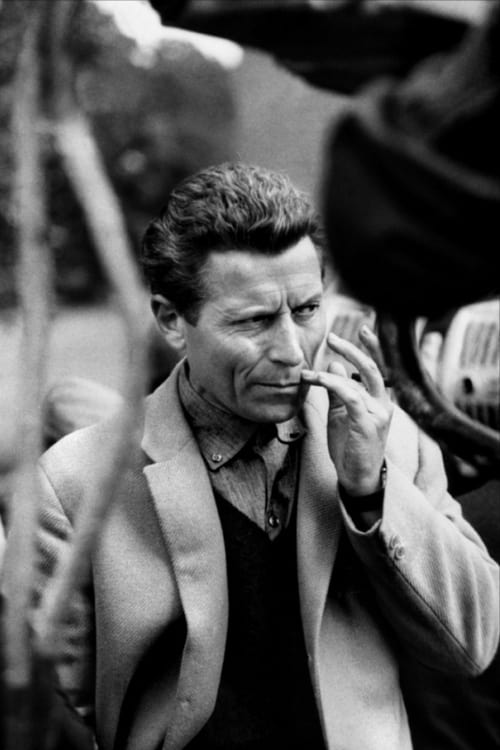
Georges Franju
출생 : 1912-04-12, Fougères, France
사망 : 1987-11-05
약력
From Wikipedia, the free encyclopedia.
Georges Franju was a French filmmaker.
He was born in Fougères, Ille-et-Vilaine. Before working in French cinema, Franju had several different jobs. Franju was also briefly in the military in Algeria and was discharged in 1932. On his return, Franju studied to become a set designer and later created backdrops for music halls including Casino de Paris and the Folles Bergère.
In the mid-thirties, Franju and Henri Langlois met through Franju's twin brother Jacques Franju. As well as creating the 16 mm short film Le Métro, Langlois and Franju also started a short-lived film magazine and created a film club called Le Cercle du Cinema with 500 francs he borrowed from Langlois' parents. The club showed silent films from their own collections followed by an informal debate about them amongst members. From Le Cercle du Cinema, Franju and Langlois founded the Cinématheque Française in 1936.
Franju ceased to be closely related with the Cinématheque Française as early as 1938, and only became associated with it strongly again in the 1980s when he was appointed as the honorary artistic director of the Cinématheque.
In 1949, Franju began work on a series of nine documentary films. The Nazi occupation of Paris and the industrialism following World War II influenced Franju's early works.
With Head Against the Wall (French:La tête contre les murs) in 1958, Franju turned toward fiction feature films. His second feature was the horror film Eyes Without a Face (French:Les Yeux sans Visage) about a surgeon who tries to repair his daughter's ruined face by grafting on to it the faces of beautiful women. His 1963 film Judex was a tribute to the silent film serials Judex and Fantomas. In Franju's later years his film work became less frequent. Franju occasionally directed for television and in the late seventies he retired from filmmaking to preside over the Cinématheque Française.
In her study of French cinema since the French new wave, Claire Clouzot described Franju's film style as "a poignant fantastic realism inherited from surrealism and Jean Painlevé science cinema, and influenced by the expressionism of Lang and Murnau". Franju's focus was on the visual aspect of filmmaking, which he claimed marked a director as an auteur. Franju claimed to "not have the story writing gift" and was focused on what he described as the "putting into form" of the film.
Franju was also extremely influenced by surrealism. He used elements of surrealism and shock horror within his films in order to “awaken” his audience. Franju had a long history of friendship with well-known surrealists including Andre Breton, and the influence of this movement is extremely evident in his works. Franju uses these elements to link horror, history, and an ironic commentary on modernity’s ideal of progress. Franju is quoted as having said “It’s the bad combination, it’s the wrong synthesis, constantly being made by the eye as it looks around, that stops us from seeing everything as strange.”
Description above from the Wikipedia article Georges Franju , licensed under CC-BY-SA, full list of contributors on Wikipedia.
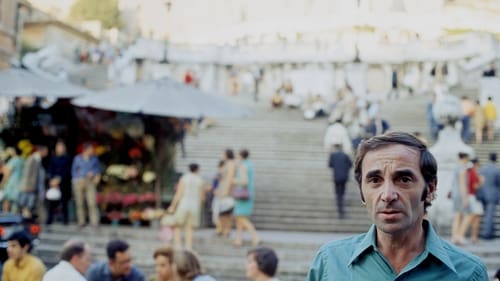
Self - Filmmaker (archive footage)
In 1948, French singer Charles Aznavour (1924-2018) receives a Paillard Bolex, his first camera. Until 1982, he will shoot hours of footage, his filmed diary. Wherever he goes, he carries his camera with him. He films his life and lives as he films: places, moments, friends, loves, misfortunes.

Himself
Made for "Cinéma, de notre temps" series. Interview with Georges Franju (1912-1987), a figure of immense importance in the history of French cinema, not primarily for his films (exceptional though many of these are) but for being the co-founder, with Henri Langlois, of the Cinémathèque Française in 1936, France's most famous and important film archive.

At the editing table, Georges Franju comments on two sequences from his film, Les Yeux sans visage. Episode of the TV program "Cinéma, cinémas".

Director
A travelling company makes its way round the small villages of France. Shot for the program Cinéma 16 broadcast by the French channel FR3, where Franju adapted an argument written by one of his favourite actors, Pierre Brasseur, and worked with his fetish actress, Edith Scob.

Director
A man comes back to his old haunts and surveys the changes around him

Original Music Composer
Clad in a featureless red mask, The Man Without A Face is involved in a single-minded pursuit of the fabled treasure of the Knights Templar in this tribute to the pulp adventure stories of Louis Feuillade.

Director
Clad in a featureless red mask, The Man Without A Face is involved in a single-minded pursuit of the fabled treasure of the Knights Templar in this tribute to the pulp adventure stories of Louis Feuillade.

Writer
Story of a young, inexperienced ship captain named Marlow, who struggles in solitude during the voyage with disease, insubordinate crew and vagaries of weather.

Director
Story of a young, inexperienced ship captain named Marlow, who struggles in solitude during the voyage with disease, insubordinate crew and vagaries of weather.

Screenplay
Serge Mouret is a frail and devout young priest in a tough country parish. When he falls down and loses his memory, he is nursed back to health by Albine, the beautiful carefree niece of the outspoken atheist Jeanbernat. After Serge and Albine fall in love, Serge recovers his memory and realizes the grave sin he has committed.

Director
Serge Mouret is a frail and devout young priest in a tough country parish. When he falls down and loses his memory, he is nursed back to health by Albine, the beautiful carefree niece of the outspoken atheist Jeanbernat. After Serge and Albine fall in love, Serge recovers his memory and realizes the grave sin he has committed.

A portrait of feuilleton author, Marcel Allain, creator of one of Franju’s favourite heroes: Fantômas.

Director
A portrait of feuilleton author, Marcel Allain, creator of one of Franju’s favourite heroes: Fantômas.

Director
The movie "L'instant de la paix" consists of three segments: 1. "Les rideaux blancs" (France) 2. "Berlin N 65" (West Germany) 3. "Matura" (Poland)

Scenario Writer
In the First World War, when Paris is expected to fall to the Germans, the attractive widow, Princesse de Bormes, organises a convoy of cars to evacuate the wounded from the front, and bring them back to her villa in Paris to recuperate. The authorities will not give them passes until an innocent 16-year-old boy, Guillaume Thomas de Fontenoy, joins them and is mistaken as the nephew of the popular General de Fontenoy. The Princess is enraptured by Thomas and her daughter, Henriette, falls in love with him. However Thomas feels impelled to see more of the action of the war.

Director
In the First World War, when Paris is expected to fall to the Germans, the attractive widow, Princesse de Bormes, organises a convoy of cars to evacuate the wounded from the front, and bring them back to her villa in Paris to recuperate. The authorities will not give them passes until an innocent 16-year-old boy, Guillaume Thomas de Fontenoy, joins them and is mistaken as the nephew of the popular General de Fontenoy. The Princess is enraptured by Thomas and her daughter, Henriette, falls in love with him. However Thomas feels impelled to see more of the action of the war.

Self
Made for Cinéastes de notre temps series. In 1964, several French New Wave auteurs discuss the success and crisis of the wave. Featuring Claude Chabrol, François Truffaut, Jacques Rivette, Jean-Luc Godard, Jacques Rozier, Jacques Demy, Agnès Varda, Jean Rouch, and many others.
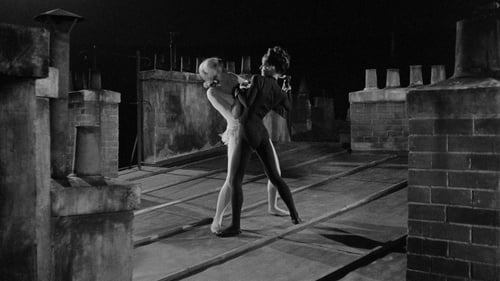
Director
부도덕한 은행가인 파브로는 사기 친 사람들에게 돈을 되갚으라고 요구하는 "쥐덱스" 사인의 협박 편지를 받는다. 그는 거절했고, 자정에 건배한 후 죽은 것처럼 보였다. 하지만, 그는 쥐덱스에게 마취제를 투여 받고 감금되었다. 쥐덱스는 은행가의 과부가 된 딸 재클린이 상속을 거절하자 그의 목숨을 살려준다. 한편 전 정부 관료였던 다이애나 몬티는 돈을 얻기 위해 재클린을 납치한다. 하지만 쥐덱스는 그녀의 뒤를 바짝 쫓고 있었는데...
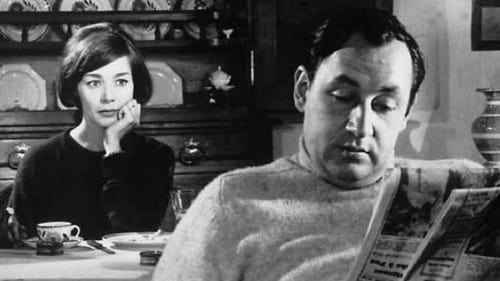
Writer
Thérèse is living in a provincial town, unhappily married to Bernard, a dull, pompous man whose only interest is preserving his family name and property. They live in an isolated country mansion surrounded by servants. Early in her marriage her only comforts are her fondness for Bernard's pine-tree forest, which was her primary reason for marrying him, and her love for her sister-in-law and Bernard's half-sister, Anne. The movie recounts in flashback the circumstances that led to her being charged with poisoning her husband.

Director
Thérèse is living in a provincial town, unhappily married to Bernard, a dull, pompous man whose only interest is preserving his family name and property. They live in an isolated country mansion surrounded by servants. Early in her marriage her only comforts are her fondness for Bernard's pine-tree forest, which was her primary reason for marrying him, and her love for her sister-in-law and Bernard's half-sister, Anne. The movie recounts in flashback the circumstances that led to her being charged with poisoning her husband.
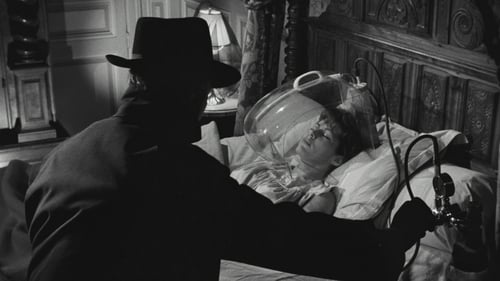
Writer
An old count hides just before he dies to annoy his heirs. The heirs search a manor for the count's body and are killed off one by one. Jean-Marie, his fiancée Micheline, and Edwige investigate the deaths and search for the count's body.

Director
An old count hides just before he dies to annoy his heirs. The heirs search a manor for the count's body and are killed off one by one. Jean-Marie, his fiancée Micheline, and Edwige investigate the deaths and search for the count's body.
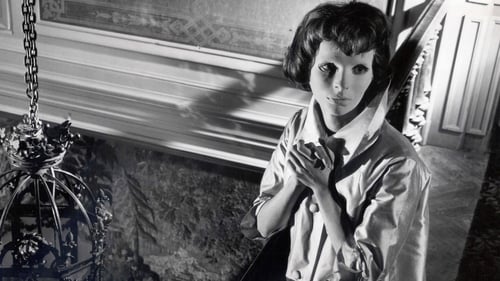
Director
파리 근교, 똑똑하고 유명한 외과의사 제네시에는 차사고로 사랑하는 딸 크리스티안의 얼굴을 망가트리게 된다. 딸의 망가진 얼굴을 보고 죄책감을 느끼던 제네시에는 비서인 루이스를 이용해 젊은 여자들을 납치하고 그들의 얼굴을 크리스티안의 얼굴로 이식시키려고 하는데...프랑스 공포소설의 전통에 기반한 "얼굴 없는 눈"은 얼굴을 바꾼다는 엽기적인 설정을 시적 감수성으로 담아내는 독특한 작품이다.
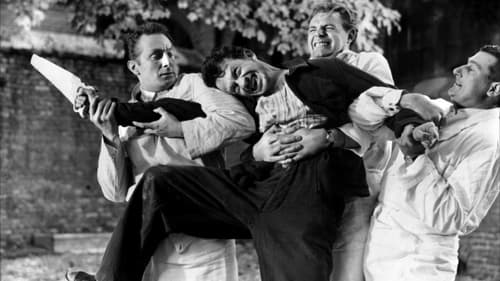
Adaptation
An aimless young man is committed to a psychiatric hospital by his father in an attempt to cure him of his delinquent tendencies.

Director
An aimless young man is committed to a psychiatric hospital by his father in an attempt to cure him of his delinquent tendencies.

Director
A residential area schoolboy discovers the odd universe of the Parisian metro. At one point, he glimpses the beautiful face of a blond-haired girl. Later on, he falls asleep and possibly dreams his first love dream…

Writer

Director

Script

Director

Director
The life and work of the pioneering scientists, told through the words of Marie Curie.

Director
A lyrical evocation of times past and a reflection on the inevitable passing of time through the recollections of an old fisherman.

Writer
A lyrical evocation of times past and a reflection on the inevitable passing of time through the recollections of an old fisherman.

Screenplay
Once again in this documentary Franju depicts a distressing scenario, another of those corners of society hidden from everyday eyes: the tale of an abandoned dog finally taken to the pound, where a sad fate awaits it.

Director
Once again in this documentary Franju depicts a distressing scenario, another of those corners of society hidden from everyday eyes: the tale of an abandoned dog finally taken to the pound, where a sad fate awaits it.

Writer
The planet is filled with dust and particles of all kinds, natural or originated by man. Such a state of things has of course a great many consequences for public health, with diseases like silicosis, inherent in various human activities, some of which are detailed (farming, notably the treatment of flax; industrial activity, particularly porcelain and cement work, coal mining).

Director
The planet is filled with dust and particles of all kinds, natural or originated by man. Such a state of things has of course a great many consequences for public health, with diseases like silicosis, inherent in various human activities, some of which are detailed (farming, notably the treatment of flax; industrial activity, particularly porcelain and cement work, coal mining).

Director
A tour of the Hotel des Invalides, and more particularly of the Army Museum and the Saint Louis Chapel. From François I's armor to Guynemer's airplane, to Napoleon's and Marshall Foch's tombs. But this is no ordinary tour,it is rather a chilling visit guided by Georges Franju and narrated by Michel Simon emphasizing - at times through biting humor -not the glory but the nonsense of wars, but their tragic aftermath.

Screenplay
This 1952 film by Georges Franju is a biographical film about cinematic illusionist Georges Méliès. It features Méliès’s widow, Jeanne d’Alcy, as herself, and their son, André, as his own father. LE GRAND MÉLIÈS, like Franju’s Louis Feuillade tribute, JUDEX, is a revealing homage to one of the director’s idols.

Director
This 1952 film by Georges Franju is a biographical film about cinematic illusionist Georges Méliès. It features Méliès’s widow, Jeanne d’Alcy, as herself, and their son, André, as his own father. LE GRAND MÉLIÈS, like Franju’s Louis Feuillade tribute, JUDEX, is a revealing homage to one of the director’s idols.

Writer
This Government-commissioned documentary was intended to reflect the modernisation of French industry. However, in Franju’s hands it became an ode to fire and a fascinating portrayal of industrial architecture.

Director
This Government-commissioned documentary was intended to reflect the modernisation of French industry. However, in Franju’s hands it became an ode to fire and a fascinating portrayal of industrial architecture.
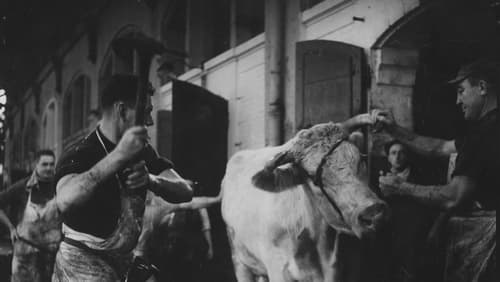
Director
An early example of ultra-realism, this movie contrasts the quiet, bucolic life in the outskirts of Paris with the harsh, gory conditions inside the nearby slaughterhouses. Describes the fate of the animals and that of the workers in graphic detail.

Director
This silent film on the Paris Metro was the first foray into film by Georges Franju and only foray into the realization of the future creator of the Cinémathèque Française, Henri Langlois.

Writer

Director










